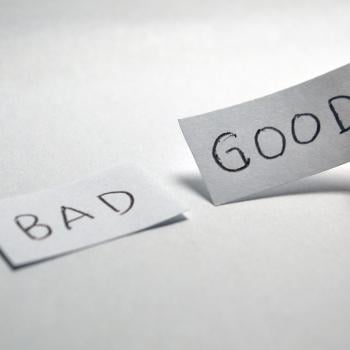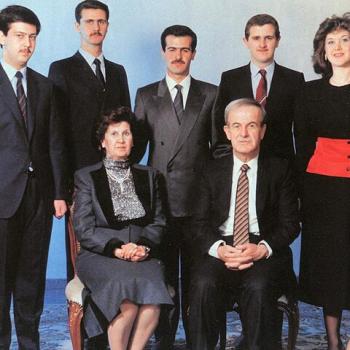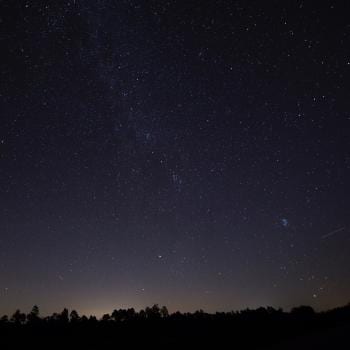There's a lot of discussion today on the founders' intent in writing the early documents of our country, and one of the key points of division is the idea of the separation of church and state. After creating this series, how do you view this debate?
In a way, sometimes you look back at history and it appears to be pretty clear what the founders felt about their religion. But really, it's open to interpretation, isn't it? As a Briton, this is interesting to me: Why does an American need to know the particular religious views of the founders with such certainty? Why isn't there the confidence to say, "who knows what they believed, but this is what's in the documents, this is what's in the Constitution, so let's work with that." But people have this desperate need to understand what it was that James Madison believed, or if George Washington was a theist, or an atheist, and so on.
I'm not sure that the answers to these questions are going to be particularly helpful. For either secular side to try to co-opt the founders seems to somewhat miss the point. There's a mystery about their own religious views, which is entirely right because religion is a personal conviction as much as anything. And what they've done is they've left a very interesting First Amendment and a quite opaque Constitution when it comes to religion that leaves things open for debate, which is how it should be.
One of the first actors to appear in the series is well known to many Americans: Michael Emerson, who played the villain Ben Linus in Lost. Tell us about that.
Michael was fantastic, and it was the easiest sell to get him to work with us. I told him what I was going to try to do. I told him, look, we're not trying to show Puritan chickens crossing the road, or basket weaving women. I'm going to throw you in a small room, and it's going to be me, my director of photography, and you, and we are just going to work it together, the three of us.
For an actor, that's one of the greatest challenges, especially when you've just come from a series like Lost where there's a thousand people around you and three trailers. Suddenly, Michael's in a cold, dark room in northern Massachusetts, with a strange Brit saying, "well, try this." And he loved it -- what actor wouldn't, given an opportunity to flex their creative muscle. Michael is a stunning actor, and in three days he completely transformed that set. No one knew if this is going to work, and as soon as Michael opened his mouth in this first take, no one said a word -- that was it.
What else should Patheos readers know about this series?
I would say that there was an approach we really wanted to take, which is to not make this feel like homework. The story was too personal and too rich for us ever to have the feeling that people would groan that this series is coming on and that they "ought" to watch it. It was terribly important that we gave this series a sense of excitement and discovery, and a personal quality. The stories we told needed to feel emotional and intimate and personal, because that's what religion is.
It's not just the impersonal narrative of America's religious journey and quest, it's also about individual people struggling with themselves and others to express themselves religiously, and that's a really interesting personal story. So really it's about getting into people's lives, and in doing so, you tell a larger story about America.
The other thing I would say in historical documentaries is that quite often you're not absolutely sure what you're looking at -- you see people who are apparently re-creations, 18th-century people walking around, and when that person speaks, is he speaking the way the character spoke, with the right words? We used only the words that the characters wrote or said themselves. Every single word. There isn't a single made up word in the series out of an actor's mouth that wasn't spoken or written by the character he or she portrays.
Of course we're interpretive in this series: that's what historians do -- they interpret history. But we pay respect to the characters by not trying to add a flourish, or somehow make it "better." That's the only right and respectful way to treat history.
Read more from Patheos' coverage of the PBS Series: God In America here.




